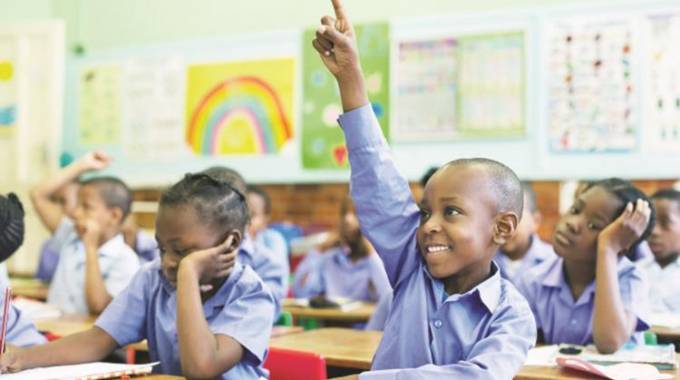Keeping schools open vital

Dr Tajudeen Oyewale Correspondent
Zimbabwe, like most other countries around the world, closed its schools as part of its efforts to mitigate the spread of Covid-19 over the last year and half.
This school closures have come with a high price for the millions of Zimbabwean learners and many other countries.
In addition to the loss of learning, many other impact can be seen, including early marriages and pregnancies for girls, increased stress and anxiety, child labour, exposure to violence and abuse, missed school feeding and vaccinations and reduced development of social skills.
Children in rural and vulnerable settings are more affected as access to resources such as alternative learning programmes such as radio and digital learning are limited or not available at all.
According to experts, the decision to open or close schools should be based on risk analysis and the epidemiological considerations in the communities where they are situated.
Across many parts of world, the reopening of schools and pre-schools has not led to surges in cases, especially in areas with lower community transmission and where schools have taken precautions.
With schools now open for all learners, every effort should be made to keep the schools safe, functional and to remain open.
By keeping schools open we reduce the risk of children dropping out and increase learning opportunities for children, as well as address their psychosocial needs.
Special attention must be given to children in remote areas where access continues to be challenging.
The Ministry of Primary and Secondary Education and the Ministry of Health and Child Care, with support from UNICEF and WHO have demonstrated how two sectors can join forces and address Covid-19 in school and learning institution settings.
With the development of the Standard Guidelines For the Coordinated Prevention and Management of the Covid-19 pandemic at all learning institutions as well as the joint action plan by the Health and Education Ministries to mitigate Covid-19 in learning institutions, Zimbabwe is off to a good start with this new school reopening.
The continuation of the drive to vaccinate all teachers and frontline workers as well as ensuring schools have access to protective devices, disinfectants and hand washing facilities as well as using creative solutions to adhere to distancing will be critical steps to reduce the risk of transmission among learners.
By reducing the community Covid-19 cases we can reduce the risk of Covid-19 in schools.
UNICEF has been advocating at the global and local levels throughout this pandemic that schools should be the last to close and the first to reopen.
As we start to get our children back into the classrooms, let’s all collectively encourage schools to remain open whilst reinforcing the needs for our children and school communities to practice behaviours that will reduce the spread of the virus.
#ForEveryChild, access to quality education.
Dr Tajudeen Oyewale is UNICEF’s representative in Zimbabwe









Comments